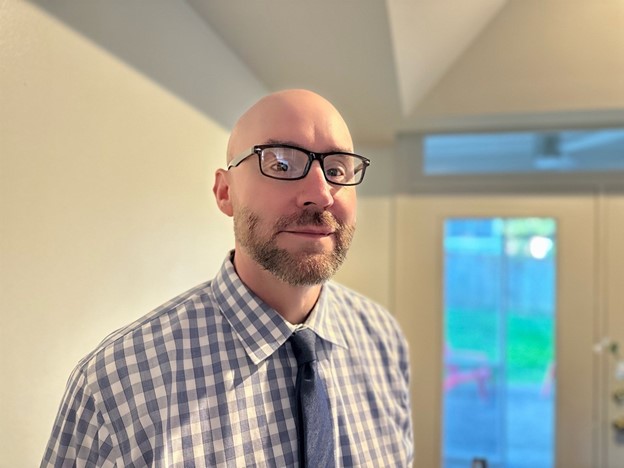 Jon Schlenske, is a mental health practitioner specializing in co-occurring disorders.
Jon Schlenske, is a mental health practitioner specializing in co-occurring disorders.
In a family, mental illness and substance use disorders impact more than just one person. The presence of both known as co-occurring disorders stresses, burdens, strains and hurts everyone. This is perhaps no more obvious than in the children of those struggling with co-occurring disorders.
Maggie Hennler sat down with Jon Schlenske, a mental health practitioner specializing in co-occurring disorders, to chat about how family members, professionals, friends and others can support children facing these difficult situations.
Maggie Hennler: It seems children of parents facing mental health issues or substance use disorders often feel responsible for the pain their mom or dad is going through. Is this true and how can it be addressed?
Jon Schlenske: Yes, this is true. Children of parents with co-occurring disorders often say things like, If I didn't laugh so loud or didn't fight with my siblings, my mom or dad wouldn't use drugs or alcohol. While of course this isn't true, the lack of emotional maturity in children leads them to believe it is true. An easy to remember, and simple to teach, slogan can help kids remember they are not to blame. It is called, The 7 C's. The first four C's are: You did not CAUSE the mental illness or addiction; you CANNOT CONTROL it; you CANNOT CURE it; but you certainly CAN COPE with it.
Maggie Hennler: That is a great place to start. What else can be done to help children navigate this painful experience?
Jon Schlenske: It is imperative that communication is age- and maturity-level appropriate. For young children, it is very hard to communicate in a manner they can grasp. To make them feel safe, you can share that their mom or dad is ill and working on getting better and emphasize how none of it is related to their behavior, personality or needs. Also, try to refrain from making promises to the child in terms of when he or she can see their parent. You do not want to get them overly excited or anxious only to feel let down and rejected if plans fall through. With older kids, it's okay to broach the topics of mental illness and addiction and explain that it is not a choice and that co-occurring disorders are treatable. You can openly and honestly discuss addiction, how it works, why it is so scary and how it can be addressed. For older children, an educational component is entirely acceptable and even helpful.
Maggie Hennler: Thank you for those tips. Children in homes where untreated mental illness and substance abuse are present are more likely to struggle in a variety of ways. Can you elaborate on what you have seen?
Jon Schlenske: Yes. The most important first step is to ensure the child is out of harm's way and away from the parent until they take the steps to seek help. Once the child's safety is ensured, it is time to address the consequences they have suffered and get help to improve their mental and emotional wellbeing. When a mom or dad has a co-occurring disorder, children often have low self-esteem, problems communicating, trouble forming health peer relationships, difficulty expressing emotions appropriately, increased insecurities, struggles in school, emotional problems, behavioral problems, higher risk of developing a substance use disorder and a significant potential of being victims of sexual, physical or verbal abuse. Caregivers must be able to recognize key concerns and offer solutions with the help of family, social workers, school staff, doctors and mental health professionals. The child needs a strong support system and a wide range of services to encourage their own growth, security and coping skills. These are complex situations and can worsen without constant care and attention.
Maggie Hennler: Let's go back to those 7 C's. What are the last three?
Jon Schlenske: Sure. The first half of the 7 C's stresses that the child is not responsible for their parent's mental health struggles or substance use disorder. The remaining three focus on managing hard times in a healthy way, openly sharing feelings and practicing routine self-care. Those three C's are: I can take CARE of myself; I can COMMUNICATE my feelings; and I can make good CHOICES and CELEBRATE who I am.
Maggie Hennler: Thank you for all this amazing information, Jon. Any final thoughts to share?
Jon Schlenske: It is important for a child of a parent with a co-occurring disorder to know they are not alone and that there is hope and help. As their mom or dad heals, they too can recover from past emotional wounds and have hope for a repaired and healthy relationship in the future. This is also true for parents looking into what is foster care, and they should be aware of the challenges and opportunities surrounding co-occurring disorders. Co-occurring disorders are complex, and children have a right to have their feelings affirmed. This requires the presence of responsible adults in their life who can provide age- and context-appropriate support. Finally, always keep in mind the most important component: children must be allowed to have fun and enjoy being children.